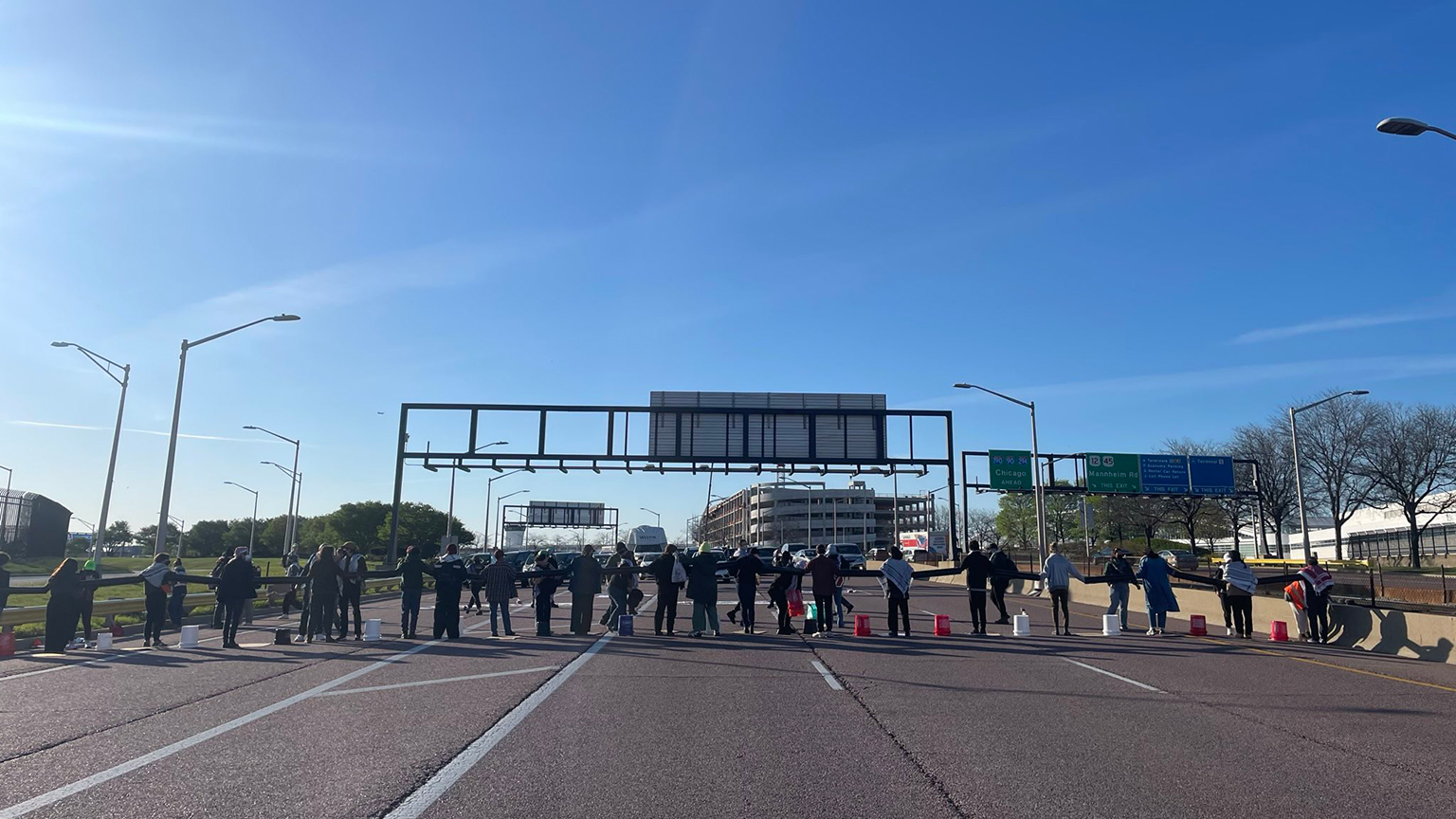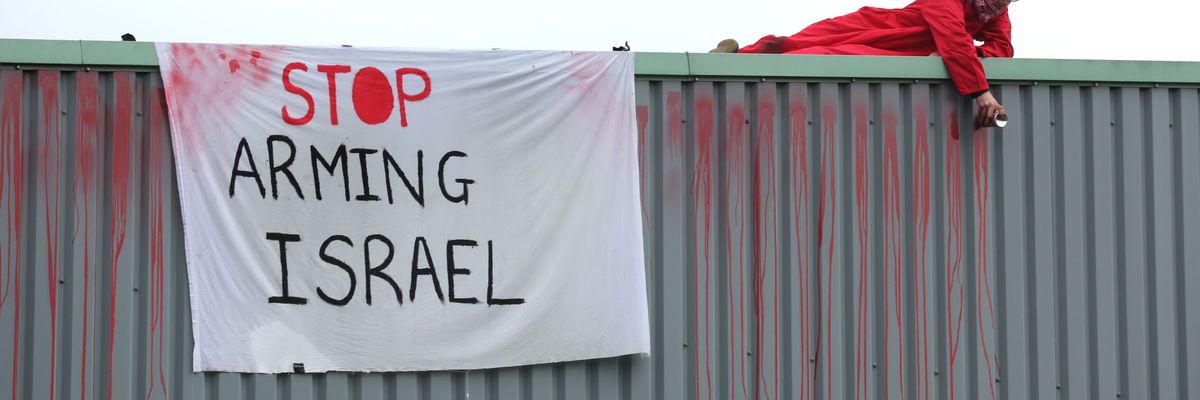International coordinated actions shut it down for Gaza
Original article republished from peoples dispatch under a Creative Commons Attribution-ShareAlike 4.0 (CC BY-SA) license.
Across the United States, Australia, and the UK, Palestine solidarity activists took action on April 15 as part of global call to strike for Gaza

April 15 marked yet another global day of solidarity with Palestine, in which activists across the globe in countries such as the United States, Australia, and the UK took action for Gaza. Activists were responding to a global call to strike for Gaza, which originated within Palestinian civil society.
In the United States, the global strike for Gaza also coincided with the day that taxes are due in the country (Tax Day). Activists used this as an opportunity to highlight how much of taxpayer money goes to the weapons industry.
In several cities, activists strategically targeted sectors of the war machine, including the offices of Lockheed Martin in Arlington, Virginia, the largest weapons manufacturer in the world. Activists who occupied the Arlington office highlighted that Lockheed Martin receives billions of dollars in taxpayer money each year, which is used to produce the arms that Israel uses to kill Palestinians.
While activists occupied the building, protesters outside marched up to the office doors, staging a rally and shouting at employees inside the building to quit their jobs.
Activists also blockaded the entrance to a facility belonging to Boeing, another massive weapons manufacturer that supplies Israel, in St. Charles, Missouri.
A facility of weapons manufacturer Pratt and Whitney was also targeted in Connecticut, where organizers blocked the entrance to the factory to impede production.
On the same day, several activists blockaded the road going to the Chicago O’Hare International Airport, blocking Terminals 1 through 3. Over 40 protesters were arrested after taking this action, who have as of now all been released.
Several bridge blockades took place in the Bay Area. Protesters first stopped traffic on the Golden Gate Bridge, holding banners that read “Stop the world for Gaza” and “End the siege on Gaza now!”
Protesters later took further action and shut down the Interstate 880 in Oakland. Altogether, the California Highway Patrol announced the arrests of 38 people.
In London, activists with Palestine Action targeted the office of BNY Mellon, demanding that the bank divest with Elbit Systems, Israel’s largest weapons company. BNY Mellon offices in Manchester were also targeted.
In Adelaide, Australia, pro-Palestine activists occupied the office of Australian Foreign Minister Penny Wong’s office. Activists said this action had been undertaken to “protest the government’s ongoing complicity in, and facilitation of, the genocide occurring in Gaza—a genocide which has been enabled by international forces, like Australia, to continue for over six months.”
In Melbourne, hundreds gathered in front of the parliament building, demanding that the Australian government stop cutting deals with Elbit systems.
Original article republished from peoples dispatch under a Creative Commons Attribution-ShareAlike 4.0 (CC BY-SA) license.
